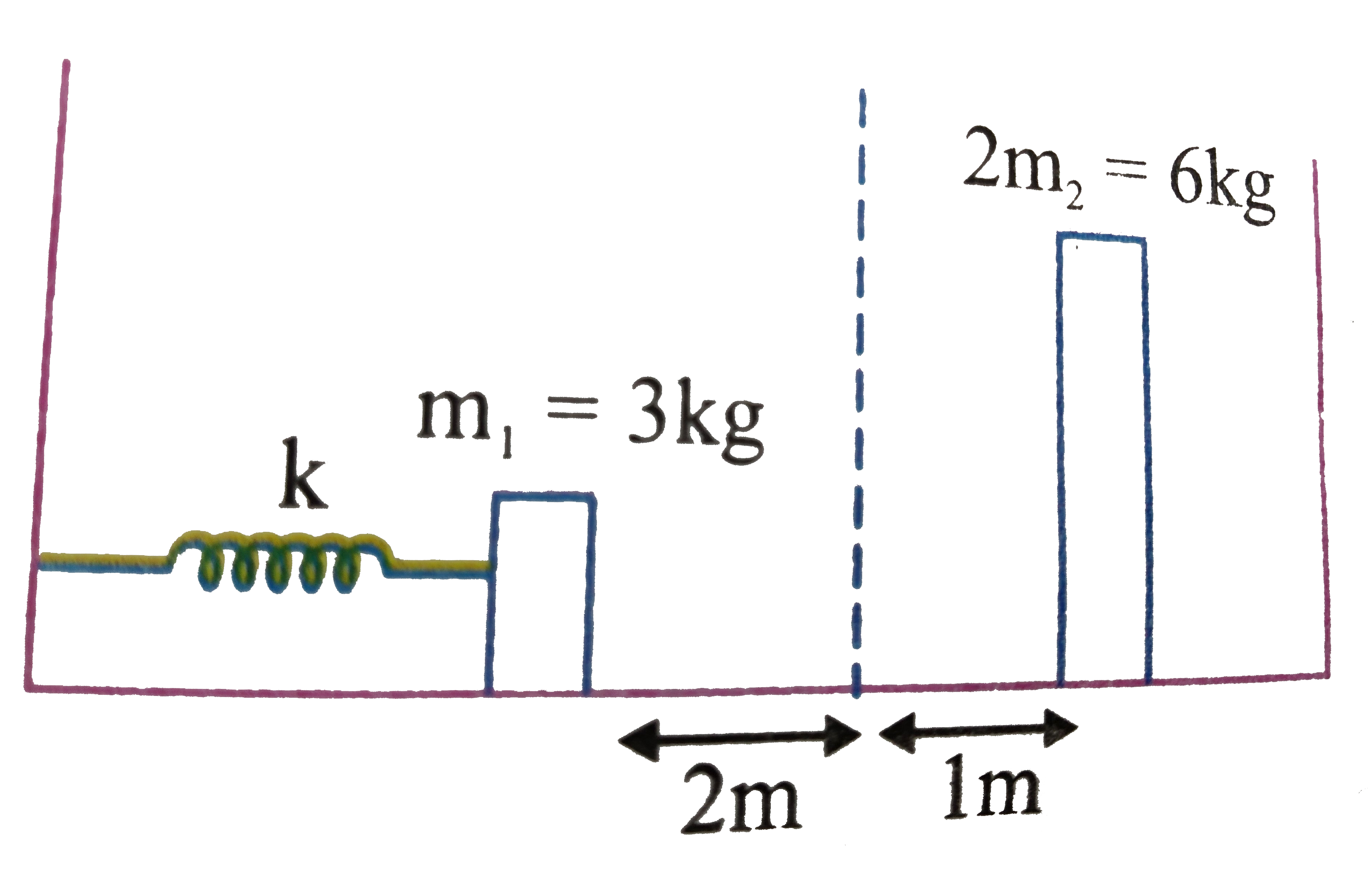A particle in linear SHM has speeds 4 cm/s and 3 cm/s when its displacements from the mean position are 3 cm and 4 cm , respectively. Find its period of oscillation.
Data : x1=3cm,v14cm/s,x2=4cm,v2=3 cm/s
v21=ω2(A2−x21)andv22=ω2(A2−x22)
v21−v22=ω2(x22−x21)
4π2T2(x22−x21) (∴ω=2πT)
T2=4π2(x22−x21v21−v22)
4π2(42−3242−32)=4π2
The period , T=2π=2×3.142=6.284s
Topper's Solved these Questions
- BOOK - NAVNEET PUBLICATION - MAHARASHTRA BOARDCHAPTER - SOLVED PROBLEMS - I EXERCISE - ELASTICITY26videos
SOLVED PROBLEMS - I
- BOOK - NAVNEET PUBLICATION - MAHARASHTRA BOARDCHAPTER - SOLVED PROBLEMS - I EXERCISE - WAVE MOTION11videos
SOLVED PROBLEMS - I
- BOOK - NAVNEET PUBLICATION - MAHARASHTRA BOARDCHAPTER - SOLVED PROBLEMS - I EXERCISE - GRAVITATION9videos
SOLVED PROBLEMS - I
- BOOK - NAVNEET PUBLICATION - MAHARASHTRA BOARDCHAPTER - SHORT ANSWER QUESTIONSEXERCISE - Assignments3videos
SHORT ANSWER QUESTIONS
- BOOK - NAVNEET PUBLICATION - MAHARASHTRA BOARDCHAPTER - SOLVED PROBLEMS-II EXERCISE - Assignments5videos
SOLVED PROBLEMS-II
Similar Questions
A body executing S.H.M. has its velocity 10cm/s and 7cm/s when its displacement from the mean positions are 3cm and 4cm respectively. Calculate the length of the path.
View SolutionA boby excuting SHM has its velocity its 10cm/seeand7cm/see when its displacement from themean positionare 3cm and 4cm , respectively. Calculate the length of the path.
View Solution
Knowledge Check
- Question 1 - Select One
The velocities of a body executing S.H.M. are 3 cm/s and 4 cm/s when the displacements from the mean position are 4 cm and 3 cm, then the period of oscillation is
A12πsBx2sC2xsD2πs - Question 2 - Select One
A body executes SHM has its velocity 10cm/s and 7cm/s when its displacements from mean positions are 3cm and 4cm respectively. The length of path is nearly
A10cmB9.5cmC4cmD11.36cm - Question 3 - Select One
Two blocks of masses 3kg block is attached to a spring with a force constant, kk=900N/ma which is compressed 2m initially from its equilibrium position. When 3kg mass is released, it strikes the 6kg mass and the two stick togther in an inelastic collision.

The velocities of a particle executing S.H.M. are 30cm/s and 16cm/s when its displacements are 8cm and 15cm from the equilibrium position. then its amplitude of oscillation in cm is:A25B21C17D13
A particle performing S.H.M. has velocities of 8 cm/s and 6 cm/s at displacements of 3 cm and 4 cm respectively. Calculate the amplitude and period of S.H.M.
View SolutionA particle of mass 10 g is performing SHM. Its kinetic energies are 4.7 J and 4.6 J when the displacements are 4 cm and 6 cm , respectively. Compute the period of oscillation.
View SolutionAcceleration of a particle in SHM at displacement x=10cm (from the mean position is a=−2.5cm/s2). Find time period of oscillations.
View SolutionA body of mass 0.1 kg performing linear SHM experiences a restoring force of 1 N when its displacement from the mean position is 5 cm. Find (i) the force constant (ii) the period of SHM (iii) the acceleration of the body, when its displacement from the mean position is 1 cm./
View SolutionA particle moving with S.H.M. has velocitiesof 4cm/s and 3cm/s at distances of 3 cm and 4 cm respectively from the equilibrium position. Find
(a)The amplitude of the osciallation
(b) Time period
(c ) The velocity of the particle as is pases through the equilibrium position.View Solution
